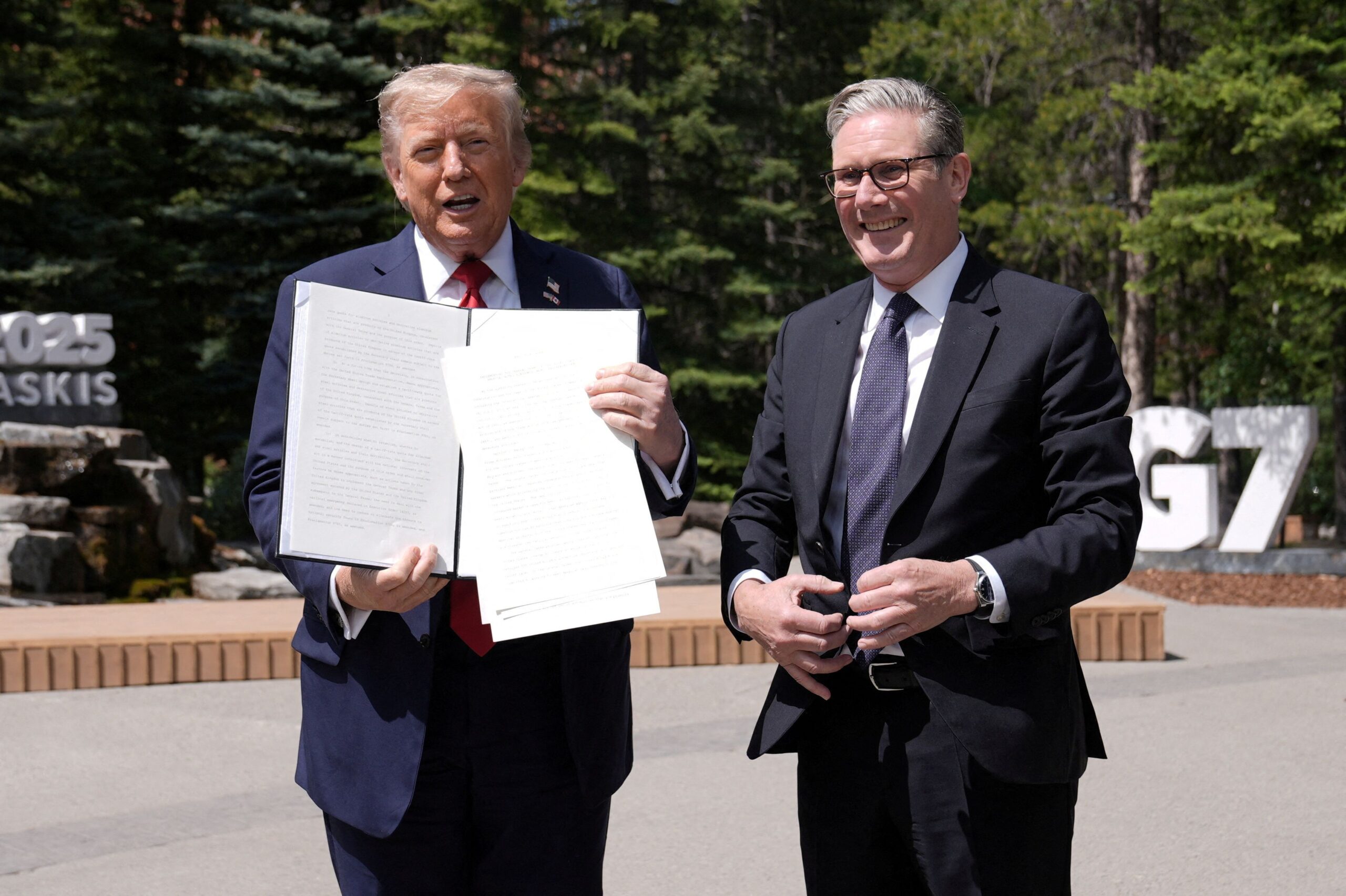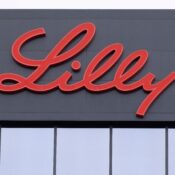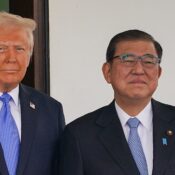
US and UK announce a trade agreement, but imports of steel remain unresolved
U.S. President Donald Trump officially lowered some tariffs on British goods on Monday by signing an agreement. The two countries are still working on a formal trade deal.
The agreement, which Trump and British Prime Minister Keir Starmer announced outside of the G7 Summit in Canada, kept the same quotas and tariff rates on British cars and got rid of tariffs on the U.K. aerospace industry. However, the steel and aluminum issues are still not completely settled.
Pharmaceuticals and other important industries were not named.
Trump waved and then briefly dropped a paper that he said he had just signed as he said that the relationship with Britain was “fantastic.”
He said, “We signed it and it’s done,” but he meant to say “trade agreement with the European Union.” He explained that it was actually a deal with Britain.
“A very good day for both of our countries, a real sign of strength,” Starmer said.
The U.S. wants to put a limit on steel and aluminum imports from the UK that won’t be taxed at 25%. However, Britain has to show that its steel supply lines and production facilities are safe first, according to an executive order released by the White House.
It was announced by the White House that Commerce Secretary Howard Lutnick will decide how high the limit should be.
Britain didn’t have to deal with the US’s tariffs of up to 50% on steel and aluminum that it put on other countries earlier this month, but it could have had to deal with higher tariffs starting July 9 if a deal to lower the tariffs wasn’t made.
Both leaders confirmed their plan to let British automakers send up to 100,000 cars to the US each year at a 10% tariff rate, which is lower than the 25% rates other countries have to pay.
The plan will be in action seven days after it is put in the Federal Register, according to the presidential office.
“The agreement also gets rid of tariffs on the UK aerospace industry, which includes parts and planes,” the executive order says.
Brexit was the first country to agree to lower tariffs from Trump. In exchange, the U.S. lowered tariffs on UK cars, metal, and steel imports, and Britain agreed to lower tariffs on U.S. beef and ethanol.
Deal execution was delayed while details were worked out, and some problems are still not solved.
London said the deal was a huge win for its car and aerospace industries and pointed out that it was the only country that had been able to get a deal like this with Washington.
“Putting trade deals into effect can take months, but we’ll be delivering on the first set of agreements in just a few weeks.” “That’s not all,” UK Trade Secretary Jonathan Reynolds said in a statement.
According to Reynolds, the two countries decided to share 13,000 metric tons of beef. However, it was made clear that U.S. imports would have to meet strict UK food safety standards.
Both countries are still working to get “significantly preferential outcomes” for the UK pharmaceutical sector, and work will continue to protect the industry from any new tariffs that might be put in place as a result of the U.S. Commerce Department’s Section 232 probes.
Donald Trump said, “The UK is very well protected” when asked if the deal saves the UK from future tariff threats. Why do you ask? For the reason that I like them. “That’s the best protection for them.”
All Categories
Recent Posts
Tags
+13162306000
zoneyetu@yahoo.com



